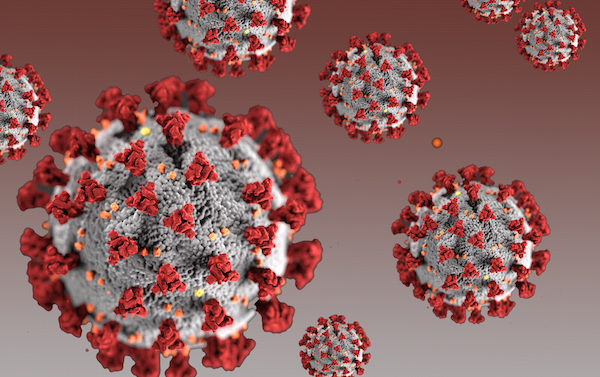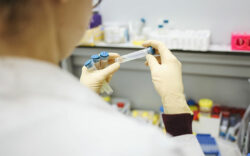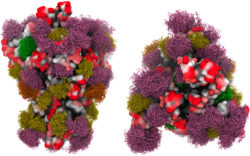The University of Georgia reported just 64 positive COVID-19 cases for the week of Oct. 19–25, marking the lowest number of cases reported in weeks. Of the cases, which are provided by self reporting through the UGA DawgCheck app, 46 were students and 18 were staff. This marks the fourth week that the data showed a significant number of infections to staff and is twice as many reported as last week. There were no faculty cases reported.
Participation in surveillance testing for asymptomatic UGA community members held strong for another week, with 1,968 tests administered. There were 25 positive cases, for a positivity rate of 1.27%.
For symptomatic testing at the University Health Center, however, there were 144 tests administered, with 10 positive and 134 negative, for a positivity rate of 6.9%. This is a drop from the 12.9% rate last week. The World Health Organization recommends a positivity rate of 5% or below to curb the spread of COVID-19.
While the data released does show relatively low numbers of cases compared to other points in the semester, the university has not released any data on how many and how often students are actually using the DawgCheck app to report symptoms, testing and positive cases. The data release each week does include a history of response rate to a follow-up survey, however. A look at that table shows that fewer and fewer students have participated in the survey over the course of the semester.
Upon request for release of usage data this week by Flagpole, the UGA Marketing and Communications Department said an announcement next week would provide clarity, and also include information on how safety and testing will be addressed as students go home for the end of the semester at Thanksgiving and return in January. This week’s press release on the weekly data also noted plans for more testing prior to students going home for Thanksgiving.
“We continue to be pleased by the downward trends we are seeing at the university, but we know from the way the virus is spreading in other areas that we cannot relax the preventative measures we are taking,” Garth Russo, executive director of the University Health Center and chair of UGA’s Medical Oversight Task Force, said in a news release. “We especially want to be mindful of the upcoming holiday season, and for that reason, we will soon be announcing our plan to test even more individuals prior to Thanksgiving.”
Last week, COVID-19 concentrations in Athens-Clarke County wastewater showed an upward trend, and this week the viral load and concentration is very similar, according to Erin Lipp, a professor at the Center for the Ecology of Infectious Diseases. Lipp said she has been expecting to see an increase in cases locally, based on the wastewater data.
“One explanation could be that there is less testing or that there is a bias in who is choosing to get tested,” she said. “Another factor could be the increased use of antigen tests, which currently aren’t reported in the daily updates from DPH. We are also paying attention to anything that might affect levels on the wastewater side. To date we have not observed any obvious factors associated with the sewage itself. We may need some time to see how this plays out.”
The DPH county indicator report also showed an additional 95 probable cases added for Clarke County this week, with most attributed to rapid antigen testing results, which are not included in the official DPH case counts released each day. The additional probable cases, 994 to date for Clarke County, increases the number of confirmed and probable cases to 6,781.
As of Thursday Oct. 29, Athens-Clarke County has had a total of 5,787 confirmed cases, 249 hospitalizations and 49 deaths. That’s an increase of 218 cases, 10 hospitalizations and three deaths in the past week, Georgia Department of Public Health data shows. The infection rate remains around 200 per 100,000 people over a 14-day period, which is considered high.
Like what you just read? Support Flagpole by making a donation today. Every dollar you give helps fund our ongoing mission to provide Athens with quality, independent journalism.










